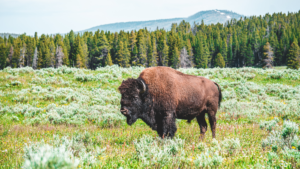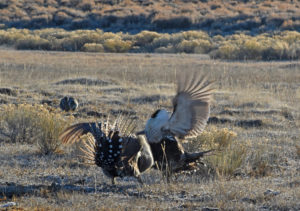For immediate release
April 2, 2025
Contacts:
Chris Smith, WildEarth Guardians, 505-395-6177, csmith@wildearthguardians.org
Greta Anderson, Western Watersheds Project, 520-623-1878, greta@westernwatersheds.org
Nico Lorenzen, Wild Arizona, 520-289-0147, nico@wildarizona.org
Conservationists, residents urge facts, not fairytales, in Catron County emergency meeting
Fire danger, drought are real threats facing rural agriculture
RESERVE, N.M.—Conservationists and Catron County residents are calling out a plan by the Catron County Board of County Commissioners to declare a “state of emergency” due to wolves in the County. A press release issued by the Commissioners provided no data or details to support its claims, but nonetheless asserted that wolves pose a risk to health and safety. However, there is no incident in recorded history of a Mexican wolf attacking or injuring a human.
“When we choose to live in a wild, rural place like Catron County, we’re choosing to coexist with all the other creatures who were here before us, including apex predators like wolves, bears, and cougars,” said Bob Moore, Catron County resident. “It is incumbent upon us, as the residents who live here, to take appropriate measures to avoid conflict. The county should be doing more to educate and encourage non-lethal deterrence. The wild creatures are what make Catron County special. It’s our responsibility to do everything we can to coexist peacefully.”
“This region has a desperately small snowpack this year, fire danger will be high, and federal agencies who typically assist rural communities are being defunded and dismantled,” said Chris Smith, wildlife program director for WildEarth Guardians. “Instead of trying to tackle real, big issues facing the agriculture community, like water security and climate resiliency, county commissioners are creating a distraction and a scapegoat.”
The County Commissioners’ press release stated that the county is experiencing a “high volume” of livestock losses, but provided no data. U.S. Fish and Wildlife Service data show that depredations per 100 wolves, which takes into account the growing Mexican wolf population, is actually decreasing since a high in 2019. (See Figure 1, below.) The Service has attributed this change in part to an increase in proactive measures starting in 2020.
“The number of depredations year-to-year are actually down despite a growing population of Mexican gray wolves. Our trail crews have spent months of time in the wilderness areas of the county over the last two years with known packs nearby as well as signs of their presence. Never once were myself or a member of our trail crew in danger from a wolf despite hearing them routinely at some sites.” said Nico Lorenzen, conservation and wildlife associate for Wild Arizona. “Top carnivores like the Mexican grey wolf are critical for healthy forests and ecosystem function and their recovery should be supported.”
“This isn’t just about wolves, it’s about Catron County wanting to control the public land and wildlife habitat in this part of New Mexico,” said Greta Anderson, deputy director of Western Watersheds Project. “They’ve been declaring emergencies about wolves since 2006 when there were only a couple dozen wolves on the ground. Their constituents would be better served by real information about what to do when you encounter a wolf: Stand tall, make loud noises, back away.”
There are roughly 285 Mexican wolves living in southern Arizona and New Mexico. Current policy prevents lobos from traveling north of Interstate 40. Advocates have long called for federal and state agencies to allow wolves to roam into suitable habitat further north, which would spread the population and decrease density.
###






